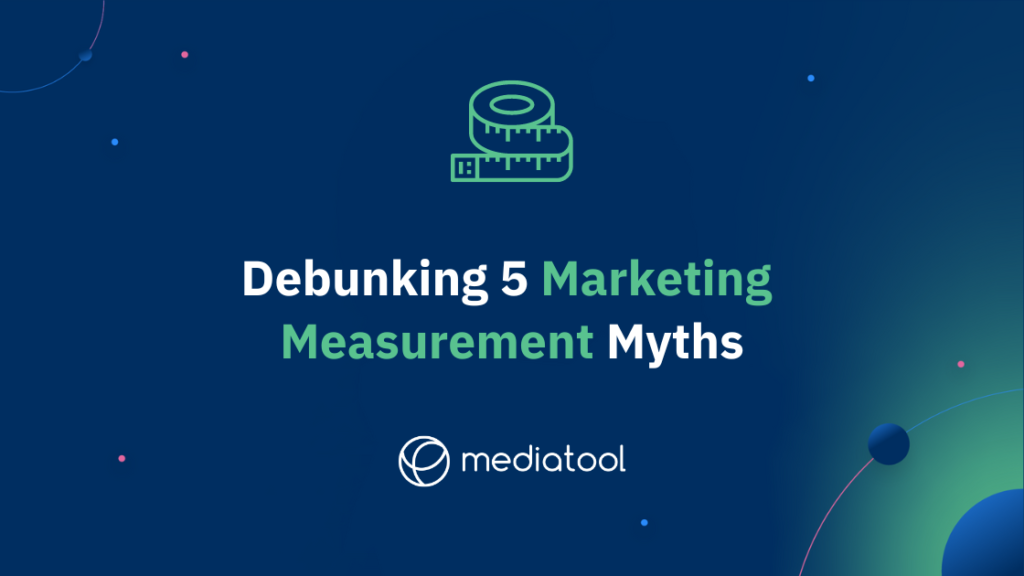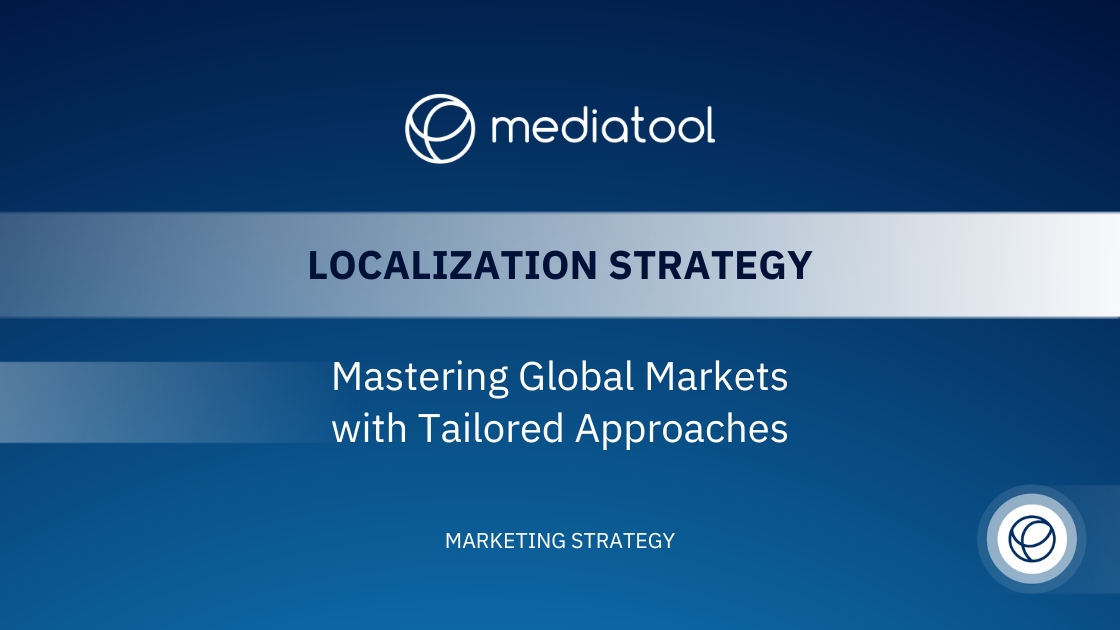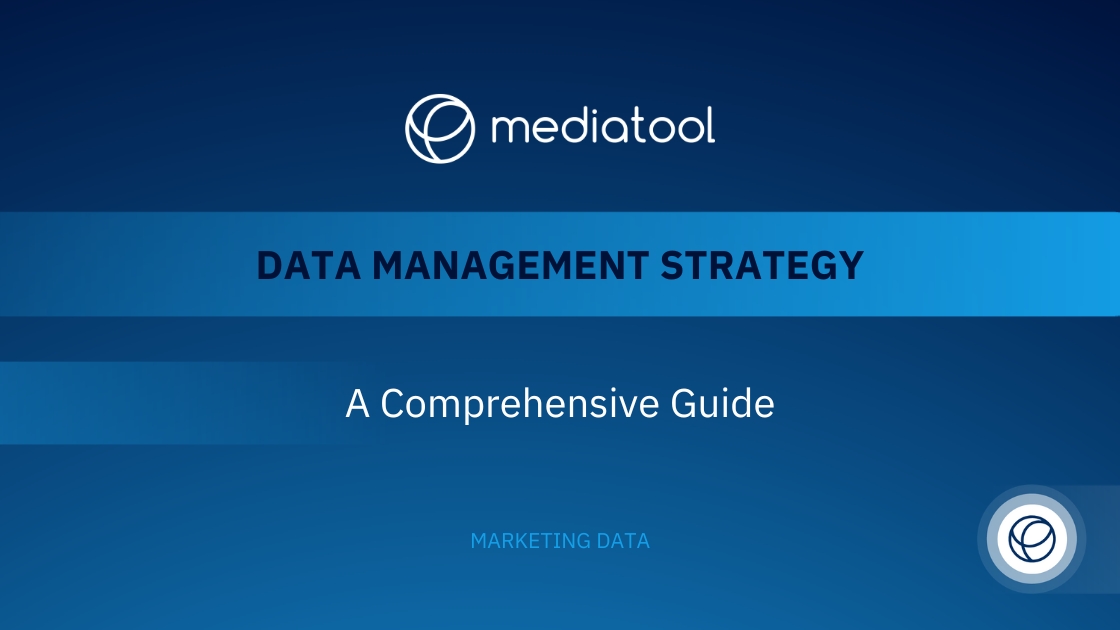Starting with marketing measurement can be challenging and uncertain. There is a lot of data coming from many sources, offering a wide range of marketing metrics, each with its own way of being understood. This complex area is where marketing campaigns are developed, improved, and assessed.
At its core, marketing measurement is a blend of analytics, insights, and actions. When orchestrated correctly, it empowers marketing teams to elevate their efforts and distinguish their campaigns in a crowded market space. The formula is seemingly straightforward: a robust marketing measurement framework plus intuitive analytics tools like Google Analytics equals a harmonious and effective marketing team.
Yet, the path to mastering this art is not without its challenges. A common obstacle faced by many in the industry is the daunting task of laying down a solid foundation of consistent and accurate data. This bedrock is essential for not just gauging but also for leveraging key marketing metrics to drive actionable insights.
However, apprehensions loom large in the minds of marketers, especially when it comes to diving deep into the analytics. Concerns about the time investment required, the accuracy of data, and the actual relevance of key marketing metrics often deter marketers from fully embracing analytical tools. These hesitations, though understandable, can be addressed and resolved more easily than one might expect.
This introduction serves as a primer to the expansive world of marketing measurement. It seeks to guide you through the nuances of aligning strategy, process, and people, to construct a marketing measurement framework that is not just robust but also seamlessly integrated with your marketing efforts.
From understanding the nuances of customer lifetime value to effectively utilizing various marketing channels, and from aligning sales and marketing teams to optimizing marketing spend, this journey will unravel the many facets of measuring and enhancing marketing effectiveness.
Our goal is to demystify the complexities of marketing measurement, providing you with the insights and tools needed to transform your marketing metrics into actionable strategies, thereby paving the way for successful and impactful marketing campaigns.
Marketing Measurement Myths
Myth #1: You Need a Technical Background to Measure Marketing Metrics
Evolving Role of Technology in Marketing Metrics
Contrary to the belief held in the early days of digital marketing, a technical background is no longer a prerequisite for marketing metrics. Modern marketing measurement platforms have significantly simplified the process.
These platforms are designed to lessen the reliance on technical skills or advanced mathematical knowledge, thus allowing marketing teams to focus on their strengths: making creative and critical decisions to enhance marketing effectiveness.
A Cautionary Note on Ease of Use
However, this ease of use comes with a note of caution. While analytics tools, such as Google Analytics, have automated many of the labor-intensive technical tasks associated with aggregating, refining, and integrating key marketing metrics, they are not a one-stop solution.
The journey doesn’t end with setting up the software. These tools are aids, not replacements for the human element.
The Irreplaceable Human Touch in Data Interpretation
Technology facilitates the collection and organization of data, but it cannot replace the valuable insights gained from experience. The human touch is irreplaceable when it comes to interpreting data, crafting a compelling narrative from the numbers, and optimizing marketing strategies to achieve business goals.
This is particularly true when measuring the impact of various marketing channels, managing marketing spend, and evaluating the customer lifetime value (CLV) and customer acquisition costs.
The Essential Role of Marketers in the Age of Analytics
In essence, while modern tools have made it easier to track performance, understand customer acquisition, and measure ROI across multiple channels and marketing campaigns, they are tools to be wielded by knowledgeable marketers.
These professionals must actively engage with the data, discerning the right marketing metrics that matter for each campaign, and aligning them with broader marketing efforts, sales qualified leads, and overall marketing initiatives to drive future campaigns and digital marketing strategies.
Therefore, while technology in marketing measurement has evolved to be more user-friendly and accessible, the role of seasoned marketers in analyzing data, understanding market share, and leading effective campaigns remains as crucial as ever.
Myth #2: Reporting on Key Marketing Metrics Takes All Day
Two Misconceptions Underpinning the Myth
- The belief that reports are only relevant at the end of a marketing campaign.
- The assumption that crafting a comprehensive report is a time-consuming process, potentially stretching over hours or days.
Dispelling the Myth with Modern Tools
Modern marketing analytics platforms have effectively dispelled these myths. These platforms offer features like one-click reporting tools and automated report generation, streamlining the entire process.
This evolution in digital marketing tools has made it significantly easier for marketing teams to track performance, measure marketing effectiveness, and assess marketing ROI without extensive time investments.
Addressing Unique Reporting Needs
However, there are times when standard reports just don’t suffice, such as when the CEO requests a specific statistic on the fly or when unique data segmentation is needed to uncover trends in multi-channel campaigns.
This is where the advanced capabilities of intuitive marketing analytics tools come into play. They allow you to swiftly filter, segment, and compare data, enabling the generation of detailed reports in just a few clicks.
This feature is particularly crucial for marketers operating in dynamic, competitive markets, or those coordinating efforts across different geographical locations and diverse teams.
Empowering Marketers with Advanced Analytics
With these tools, marketing teams can efficiently monitor a variety of metrics, from customer acquisition costs and customer lifetime value (CLV) to sales qualified leads and marketing qualified leads. They empower marketers to actively pay attention to the right marketing metrics that matter for different campaigns and initiatives.
Such capabilities are not only beneficial for immediate needs but also for planning future campaigns, adjusting marketing spend, and optimizing digital advertising strategies.
Marketers can analyze data from social media platforms, track website traffic, and gauge the success of digital campaigns, all while aligning with business goals and ensuring effective campaigns across multiple channels.
Myth #3: Every Marketing Metric is Equally Important
Understanding the disparity between the plethora of marketing metrics available and those that are truly impactful is crucial. Not every metric collected is of equal significance at all times.
Despite the ongoing challenge of proving ROI, modern analytics tools, like Google Analytics, have simplified the process of providing meaningful metrics that align with business goals.
So, how does one discern which metrics are essential? The answer lies in identifying the ‘red thread’—the link between measurable, actionable outcomes and your overarching goals.
Consider this example to illustrate how a specific marketing metric can directly relate to business growth objectives:
Business Goal: Expand the company’s market presence in France.
Campaign Objective: Generate 10 Marketing Qualified Leads (MQLs) from France in the current quarter.
Relevant Marketing Metric: The Click-Through Rate (CTR) on a French-language Facebook ad campaign outperformed that of a LinkedIn ad.
This approach to selecting the right marketing metrics focuses marketing efforts and ensures that marketing teams are not just busy, but effective. It guides the marketing team in deploying their marketing spend efficiently, targeting the right audience through digital advertising, and ultimately driving marketing ROI.
Such a focused approach is also invaluable in planning and executing digital campaigns across various social media platforms, ensuring that each campaign contributes to overarching marketing initiatives. It enables marketing teams to measure marketing effectiveness more accurately, track performance, and adjust strategies as needed for future campaigns.
This methodology is also beneficial for sales and marketing teams, helping them collaborate more effectively to identify and nurture qualified leads, whether they are marketing or sales qualified leads. By actively paying attention to the right metrics, teams can optimize marketing investments, manage customer acquisition costs, and enhance overall marketing performance.
Campaign measurement platforms like Mediatool provide the flexibility to build custom dashboards based on metrics that matter and drill down on KPIs that demonstrate progress towards business goals.
Myth #4: Top-of-Funnel Marketing Metrics Don’t Matter
Countering the misconception that emerged from digital marketing myth #3, it’s vital to recognize that top-of-funnel metrics such as “reach” and “views” are far from meaningless.
While these metrics might seem less impactful when viewed in isolation, their true value emerges when they are analyzed in conjunction with engagement and conversion metrics.
Top-of-funnel results play a pivotal role in several key areas:
- Tracing Customer Origins: Understanding where your customers are coming from is crucial for tailoring future marketing campaigns and targeting the right audience.
- Evaluating Creative Performance: Assessing which creatives are resonating with your audience helps in refining marketing efforts and enhancing marketing effectiveness.
- Optimizing Budgets: By analyzing these metrics, marketing teams can reallocate budgets towards the marketing channels and strategies that demonstrate high performance.
- Experimenting with New Approaches: These metrics provide valuable insights that can inform the testing of new ideas, channels, or strategies in digital marketing and digital advertising.
Cross-platform analytics tools, such as Google Analytics, are indispensable in this process, but to get a complete picture, you need an integrated platform like Mediatool. They enable marketing teams to measure the effectiveness of different campaigns across multiple channels, track performance, and glean comprehensive insights.
This holistic view is essential for making informed decisions about marketing spend, customer acquisition strategies, and overall marketing performance.
These insights are particularly useful for sales and marketing teams working together to generate and nurture qualified leads, whether they are marketing qualified leads (MQLs) or sales qualified leads (SQLs). By actively paying attention to top-of-funnel metrics, marketers can better understand the marketing funnel, improve lead generation techniques, and ultimately drive marketing ROI.
Myth #5: Marketing Metrics From Different Platforms Should Always Align
One common misconception in the realm of marketing measurement is the expectation that metrics from various platforms should consistently align. This notion can lead to frustration among marketers, particularly those who are hesitant to deeply engage with marketing analytics due to the differing ways platforms present similar data.
To ensure both the inputs (data) and the outputs (marketing strategy) maintain high quality, consider these two strategies:
Focus on Trends, Not Isolated Data Points:
- Assessing performance over time is a far more reliable approach than focusing on singular data points.
- By monitoring key marketing metrics over a specified period, and combining this with your experiential insights, you can discern trends that offer a more accurate and comprehensive picture of your marketing performance.
- This approach is particularly valuable in content marketing, where understanding the gradual impact on website traffic, social media engagement, and lead generation is crucial.
Effective Data Organization from the Start:
- Before initiating any marketing activities, it’s important to establish a robust data management process. This includes setting clear guidelines for taxonomy, naming conventions, and utilizing tools like UTM tracking for better analysis.
- A small investment of time and effort into organizing your marketing data at the outset can yield significant benefits in the long term, enhancing the clarity and usability of the data for marketing measurement.
- This organized approach aids in accurately tracking marketing efforts across various ad platforms, understanding the cost per lead, and analyzing the success of different marketing campaigns in reaching the target audience.
By implementing these strategies, digital marketers can gain comprehensive insights into customer acquisition cost, customer lifetime value, and other important metrics. It helps in better budget allocations, optimizing marketing investment, and ultimately contributing to the desired outcome of marketing activities.
Moreover, these methods ensure that marketing teams, including both sales and marketing teams, can effectively track and measure the performance of various marketing initiatives, from social media campaigns to more traditional marketing activities. This holistic view is essential in developing effective strategies for acquiring new customers, retaining existing ones, and growing market share.
Marketing Measurement: The Bottom Line
In the expansive world of marketing, the array of metrics and the abundance of measurement tools can seem overwhelming, even to the most experienced marketers. But fear not, there’s a straightforward equation that demystifies the complexity of marketing analytics:
Marketing measurement framework + intuitive analytics tools = happy marketers.
This tried-and-true formula is the cornerstone of effective marketing. An astute marketing measurement framework, when paired with a robust analytics platform, grants the flexibility required to assess key marketing metrics across diverse marketing campaigns.
We provide the platform; the rest is in your capable hands. Your expertise and insights are the key ingredients that transform reliable multi-channel data into pioneering marketing activities.
By harnessing this approach, you can track everything from customer lifetime value to the cost per lead, evaluate the effectiveness of various marketing channels, and understand the dynamics of your marketing funnel. It’s about turning data into actionable insights—whether it’s analyzing website traffic, engaging audiences on social media platforms, or generating new customers through targeted content marketing.
Your role is pivotal in directing marketing efforts, allocating budgets wisely, and measuring the ROI of each campaign. This methodology isn’t just about crunching numbers; it’s about crafting stories from data, stories that reveal the path to acquiring new customers, retaining existing ones, and maximizing market share.
Remember, the power of marketing measurement isn’t just in the tools; it’s in the hands of the digital marketers who use them to shape strategies, inspire creative solutions, and drive business success.
In this journey, every click-through rate, every lead generated, and every piece of customer feedback contributes to the larger goal of achieving your business’s desired outcomes.





